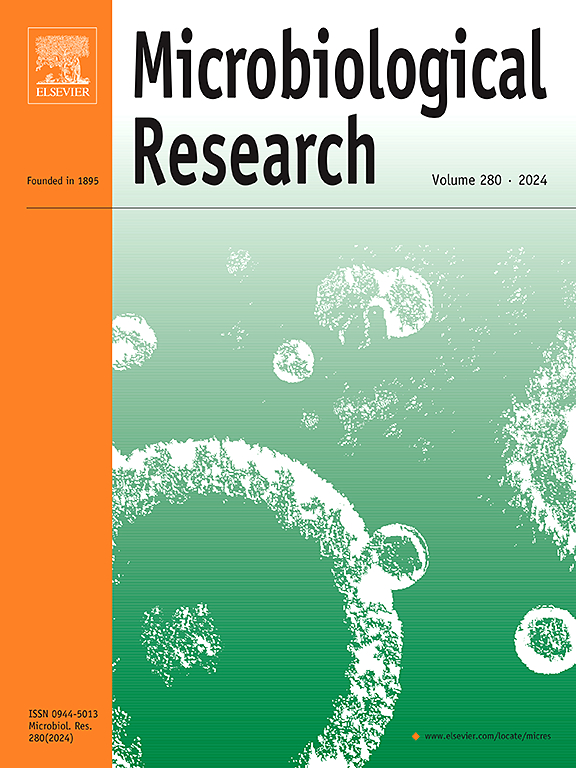呼吸道病毒感染相关炎症疾病的粘膜免疫和口腔微生态控制的新概念。
IF 6.1
1区 生物学
Q1 MICROBIOLOGY
引用次数: 0
摘要
口腔微生态失衡与口腔粘膜炎症密切相关,并与局部和全身性疾病(包括由病毒感染引起的疾病)的发生有关。本综述探讨了白细胞介素(IL)-17/辅助 T 细胞 17(Th17)轴在调节口腔粘膜免疫反应中的关键作用,重点关注其在炎症过程中的保护和致病作用。我们特别强调了在呼吸道病毒感染的情况下,IL-17/Th17 通路是如何导致炎症失调的。此外,本综述还探讨了呼吸道病毒与口腔微生物群之间的潜在相互作用,强调了口腔微生物群的改变和促炎因子的增加可作为早期非侵入性生物标志物,用于预测呼吸道病毒感染的严重程度。这些发现为新型诊断方法和治疗策略提供了启示,这些方法和策略旨在通过监测和调节口腔微生物组来减轻呼吸道疾病的严重程度。本文章由计算机程序翻译,如有差异,请以英文原文为准。
Emerging concepts in mucosal immunity and oral microecological control of respiratory virus infection-related inflammatory diseases
Oral microecological imbalance is closely linked to oral mucosal inflammation and is implicated in the development of both local and systemic diseases, including those caused by viral infections. This review examines the critical role of the interleukin (IL)-17/helper T cell 17 (Th17) axis in regulating immune responses within the oral mucosa, focusing on both its protective and pathogenic roles during inflammation. We specifically highlight how the IL-17/Th17 pathway contributes to dysregulated inflammation in the context of respiratory viral infections. Furthermore, this review explores the potential interactions between respiratory viruses and the oral microbiota, emphasizing how alterations in the oral microbiome and increased production of proinflammatory factors may serve as early, non-invasive biomarkers for predicting the severity of respiratory viral infections. These findings provide insights into novel diagnostic approaches and therapeutic strategies aimed at mitigating respiratory disease severity through monitoring and modulating the oral microbiome.
求助全文
通过发布文献求助,成功后即可免费获取论文全文。
去求助
来源期刊

Microbiological research
生物-微生物学
CiteScore
10.90
自引率
6.00%
发文量
249
审稿时长
29 days
期刊介绍:
Microbiological Research is devoted to publishing reports on prokaryotic and eukaryotic microorganisms such as yeasts, fungi, bacteria, archaea, and protozoa. Research on interactions between pathogenic microorganisms and their environment or hosts are also covered.
 求助内容:
求助内容: 应助结果提醒方式:
应助结果提醒方式:


